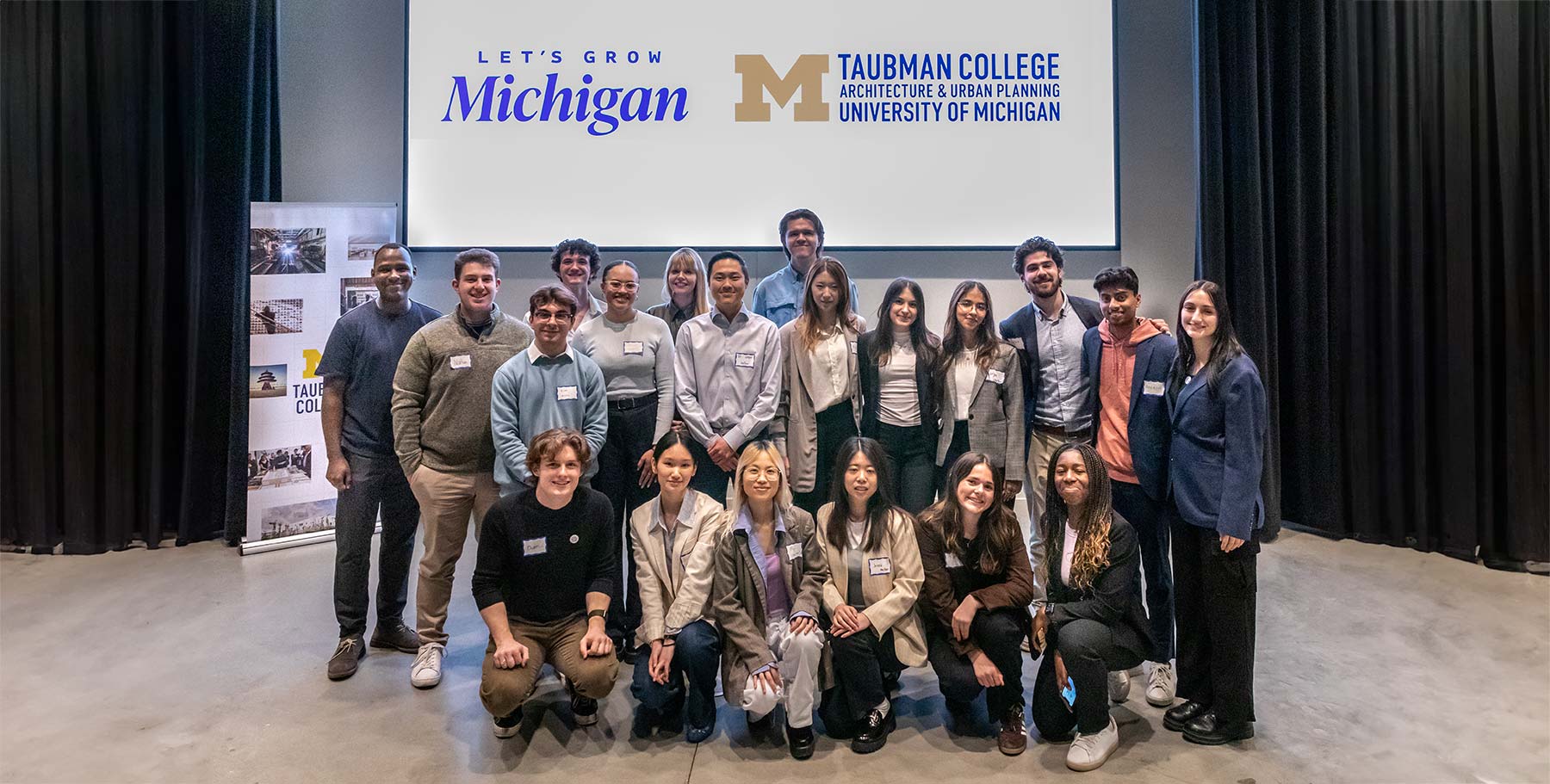Taubman Student Develops Fertilizer Alternative in India to Farmers’, Environment’s Benefit
Students from Taubman College, the School of Public Health, the Ford School of Public Policy, and the School of Natural Resources and Environment have come together to find a tangible way to reduce the use of fertilizer in India while increasing crop yield. Architecture student John Monnat represented Taubman College in this endeavor.
The group engaged in a year-long study in Telangana, India, collecting samples of silt from ponds to use instead of processed fertilizer during the dry months. This new supply would reduce the usage of traditional fertilizers and offer a natural and repurposed replacement.
“The most striking finding is that [using silt] reduces greenhouse emissions from less fertilizer use by 50-to-90 percent,” said Monnat.
The effects of desilting has not gone unnoticed. Mission Kakatiya, aiming to desilt 46,000 ponds over 5 years, was introduced just last year. This is projected to affect 11,000 villages. Desilting ponds also has the benefit of reducing the fluoride levels in the water supply. This will hopefully diminish the region’s number of cases of fluorosis, which darkens the teeth and calcifies bones.
This initiative has also been recognized as part of the Dow Sustainability Fellowship. Monnat, along with Adithya Dahagama of SNRE and Leon Espira of SPH received the first place award in the Dow Distinguished Award for Interdisciplinary Sustainability competition for this initiative in 2014.
To learn more, visit: http://ns.umich.edu/desilting-ponds-in-india-benefit-farmers-environment




